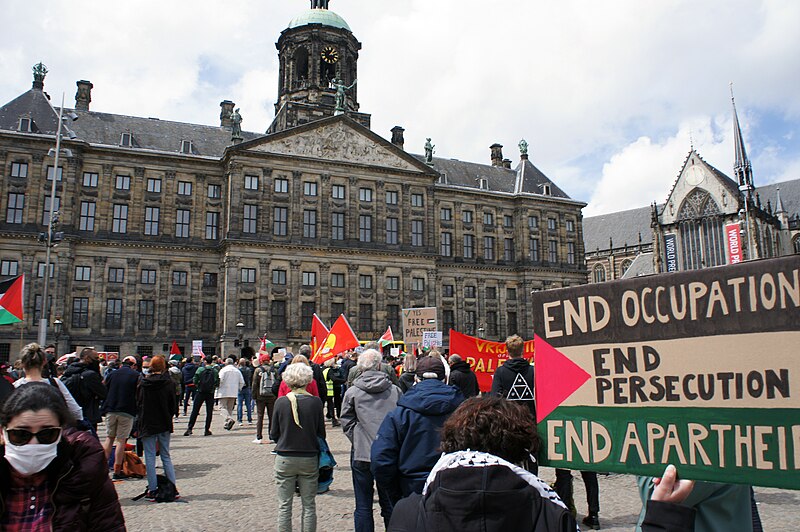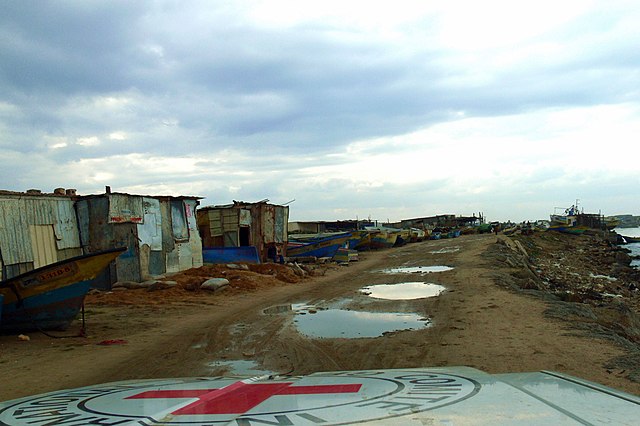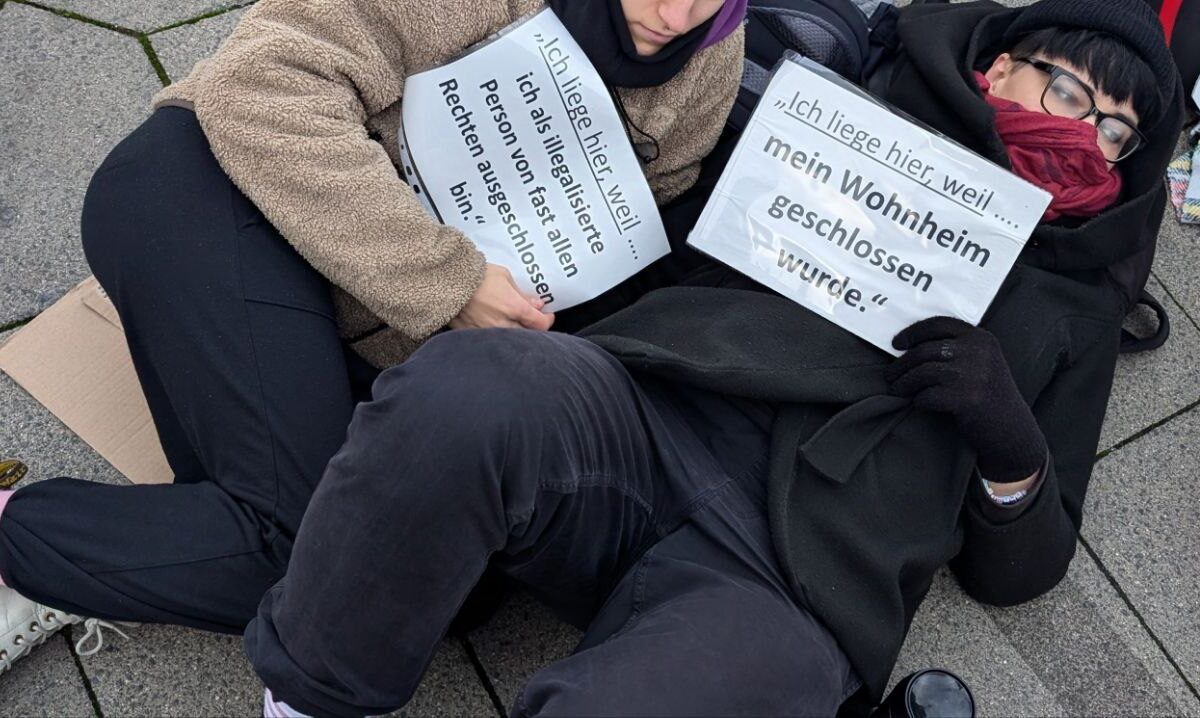Shourideh Molavi’s latest book, released earlier this year, is a historical journey through the wars and incursions on Gaza aiding us in developing our understanding of their impacts on Gaza’s built and cultivated environments.. Molavi serves as the lead researcher for Palestine at Forensic Architecture (FA) at Goldsmiths, University of London. The field of forensic architecture works on “spatial evidence within legal, political, and cultural contexts, and takes architecture to include not only buildings, but shaped environments of cities and territories.”
The research agency’s work has been used as evidence in courts and in citizens’ tribunals across the world, combining techniques such as spatial modeling and audio and video documentation of state violence and violations of human rights. In its investigations of states and corporate entities, Forensic Architecture says it wants to aid the legal and public struggle against “historical and contemporary colonial violence, including the destruction of traditional environments and life worlds.”
In “ Environmental Warfare in Gaza”, Molavi builds on her previous investigations along Gaza’s Eastern “border”, which she extends to cover the colonial history of Palestine’s environment.
Over years, Israel widened the “protective” zone along its borders, progressively reducing the arable land by flattening the land through airstrikes and bulldozers. In recent years, this process has been extended through the deliberate targeting of lands with high concentrations of pesticides, sprayed alongside the fence onto Gazan farmlands, creating the perfect “buffer zone.”Molavi concludes that this so-called “no-go zone,” ranging from 300-1000 meters, turns Gaza’s border into the ideal “one-sided” border, allowing for permeation from one side only. This constantly affects the livelihood of Palestinians in proximity to the border.
To clear the view on protestors and agriculturalists alike, specific types of plants were criminalized due to their height or banned from the environment altogether. . Whereas crops up to 80 cm height were permitted in earlier years, the Al-Mezan Center for Human Rights reported that by 2018 farmers were forced to reduce the height of their plants to only 40 cm (~15 in) (Molavi 2024, 33).
These enforced changes to the agricultural environment include citrus orchards, central to Gaza’s role as a coastal trade hub. Molavi notes that the role of the orange in the “formation of Gazan identity, including local knowledge production, socio-economic relations and migration patterns, domestic and international cultural exchange. . . is largely under-studied” (p. 27). we do know, however, that Gazan traditional citrus cultivation is closely linked to the Palestinian Nakba or “catastrophe”. Thousands of families lost access to fruit orchards and vegetable plots that lay beyond today’s militarized borders. After they became refugees and settled in Gaza, many Palestinians had to adapt to an urban lifestyle. Only a small percentage of Gazans today cultivate farmland, much of which is owned by a small percentage of large-scale landowners.
Similarly, Gaza lost many of its olive groves, often near the “buffer zone” due to clearing processes by Israel or the prohibition of taller plants. Oxfam estimates that Israel uprooted roughly 112,000 olive trees between 2000 and 2008. In addition to their symbolism, olive trees have provided Gazan grove keepers and their families with an income, and served as a critical food source during curfew-times imposed by the Israeli army in the form of oil and olives.
Early in Israel’s ongoing genocide on Gaza, many Gazans had to cut down trees for firewood to survive the winter. Gazans stress the loss they felt and the role these trees, many of which were inherited, had in their lives.
From 2017 to 2019, Gazans protested for their internationally recognized Right of Return (UNGA Res. 194 (III)). In these years the cleared and flattened area near the fence enabled the targeting and injuring of thirty six thousand Gazans, who resorted to burning tires and utilizing the toxic smoke to take cover from snipers. Roughly 29% of these injuries were brought on by live ammunition and rubber bullets, leading to many Gazans undergoing amputations. Especially for small-scale farmers, this can mean the loss of their livelihoods.
Investigations of the pesticides sprayed by Israel onto Gazan lands have resulted in the conclusion that the while plants subjected to the deliberate spraying of herbicides along Gaza’s borders showed traces of insecticides and pesticides, “damaging levels of herbicides were not detected” (Molavi 2024, 72) by the consulting Katif Center Laboratories. Contrary to these findings, farmers reported severe losses of crops, and resorted to planting different crops, often resorting to cultivation in greenhouses to shield them from herbicides. This shift changed the landscape and removed Gazan people’s access to ancestral foods and traditions, such as foraging Khobeiza (Palestinian Common Mallow) and grazing animals on the land.
Palestinian filmmaker and artist Emily Jacir questioned FA’s approach in her film Letter to a Friend (2019), dedicated to FA founder Eyal Weizmann. Given often repeated crimes in the Occupied Palestinian Territories, ranging from extrajudicial executions to war crimes and crimes against humanity in connection with global arms exporting firms, Jacir raises the question: why does her friend’s focus remain on proving that a crime has been committed instead of working to prevent it from being repeated or exacerbated?
Jacir’s Letter to a Friend can nourish movements for social and ecological justice and calls for the proactive protection and defense of lives and livelihoods. This call could form the basis of more strictly enforced policies determining what will harm the environment and local populations and inform new ways of preventing the crimes. This very necessity of protecting the soils and livelihoods from being weaponized to create scarcity can connect movements for a joint cause and a more just future.
In Verfassungsblog: On Matters Constitutional, Saeed Bagheri, Lecturer in International Law at the University of Reading School of Law, writes that “the natural environment remains the silent victim of Israel’s war on Gaza.” He highlights the Israeli military’s stance towards the environmental destruction it is causing in Gaza: while there is a military necessity to clear areas, “there appears to be little evidence of ‘widespread, long-term, and severe environmental damage’ from Israel’s air strikes on the heavily civilian-populated Gaza.”
Bagheri argues that Israel is using the “widespread, long-term, and severe” standard — an ambiguous international standard of humanitarian law — in combination with the inability of scientists to undertake careful studies of air, water, and soil quality, to screen its enormously damaging impacts in Gaza.
Even though Palestinian and Lebanese farmers, as well as international researchers have provided evidence of widespread environmental destruction over decades, we must not wait until the accepted evidence of an already destroyed environment surpasses military need. Under the precautionary principle, the burden of proof lies with the party profiting from the actions. That is why some researchers advocate for the use of the precautionary principle in armed conflict. They assert that although under International Humanitarian Law the focus rests on “all feasible precautions,” the precautionary principle provides protective guidelines and takes parts of the decision out of the hands of military personnel.
Some, like Bagheri, do not think that this is enough. Already in April 2024, six months after the start of Israel’s genocide on Gaza, Bagheri said that “the UN, in general, and the ICC in particular, should have done more to attenuate the substantial risk of mistreatment of the natural environment, concerning more particularly the ecology, health and survival of Palestinians.”
This sentiment is shared by many and goes far beyond the ongoing genocide—those who read Shourideh Molavi’s research closely will see that an intervention should have long preceded the currently ongoing destruction, given the vast amount of evidence provided.
Environmental Warfare in Gaza is an essential book to understand the ongoing war on Gaza. Following the acknowledgements that reflect Molavi’s many years of collaboration with her local colleagues, she pays tribute to her collaborator Roshdi Yahya Al-Sarraj, co-founder of the investigation’s journalistic partner organization, Ain Media Gaza, who was killed in an airstrike on his home.
Since the book’s release early this year, much has changed. Molavi, has re-edited her book to include the newest developments, but she could not have predicted the destruction that has been brought upon Gaza since. As she continues to investigate Israel’s crimes in Gaza and the continued ecocide in Gaza that enhances the famine, one section of the book brings us closer to the people and the future of Gaza:
“Refusing to limit her output to low-growing fruits and vegetables, Mona would strategically place olive trees among her crops. […] Responding to the forced biopolitical modifications of [the] otherwise familiar landscape, such acts of resistance interrupt the colonial and imperial gaze, also emphasizing the inextricable role of the environment in modern warfare.” (p.43)
Like the farmers interviewed by Molavi in 2018, the people of Gaza still refuse to be helpless in the face of a man-made famine. Initiatives such as Thamra have resorted to planting amidst the ruins to have access to food independent of the arrival of aid. Before evacuating, Yousef Abu Rabea, a Palestinian farming engineer and co-founder of Thamra, collected seeds from his family’s farm in Beit Lahia.
Thamra’s aim is to promote food stability, but Abu Rabea remained concerned: “The genocide has left the farmland all but devastated by artillery-borne white phosphorus, a potent carcinogen that lingers in the soil, poisoning farmers and making their crops unsafe to eat.” On October 7, 2024, new evacuation orders for Gaza’s North were issued, and bombing of densely populated areas of the North increased. Yousef Abu Rabea was killed by an Israeli drone strike on October 21, 2024.
While most research on effects of discharged ordnance focuses on the effects of white phosphorus on the human body, investigations by the American University of Beirut are also underway to better understand the result of soil contamination in South Lebanon’s targeted areas.
Although white phosphorus is officially an incendiary agent., it is clear that in the case of Gaza and Lebanon it is used beyond its official purpose of illumination. Nonetheless, white phosphorus is not yet deemed a chemical weapon, even thoughthe United States’ National Institute for Occupational Safety and Health already states that absorption of white phosphorus by means of ingestion is possible for humans and grazing animals because of soil and plant contamination.
Many insist that conclusive investigations can only be done after the end of Israel’s attack on Lebanon and Gaza, but Lebanese farmers have already lost thousands of trees due to white phosphorus fires. Previous attacks with white phosphorus have led to diminished harvests and contaminated streams. Earlier research has linked white phosphorus particles in Alaska’s Eagle River Flats to the death of thousands of waterfowl.
In a recent blog post published by the Earth Law Center, an ecocentric legal organization based in Durango, Colorado, Elena Tiedens concluded that where the precautionary principle fails to prevent damage done to the environment, ecocide is a path through which the destruction of the environmentcould be persecuted and punished. Subsequently, co-violations to human rights could – and should – be approached from this angle too, bringing justice to those whose livelihoods and health have been destroyed in the near and far future.
Ecocide in Gaza is not just a local issue. Most recently, Reuters’ reported on how the release of asbestos through urban bombing will affect the health of generations to come. In the words of Cenk Tan, ecocide is “a phenomenon that has serious international impact. It represents humanity’s toll on Earth.”
Book details: Environmental Warfare in Gaza, , Shourideh C. Molavi Pluto Press February 2024




